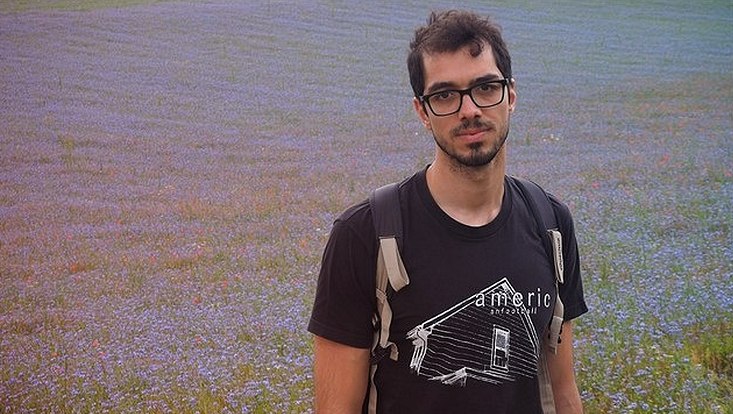Emanuele Gendy
8 September 2020

Photo: Elisa Mascaretti
Emanuele Gendy says that Theoretical Physics has always had a great appeal on his mind. He grew up in central Italy and made his way to Hamburg via Pisa and Switzerland. In July 2019, he graduated from his Master at the University of Pisa with a thesis carried out in Lausanne under the supervision of Prof. Riccardo Rattazzi. In his Master thesis, Emanuele Gendy focused on a particular case in which the space-time invariance can be hidden in a tricky way in some specific set-ups, so much that it looks like it has disappeared. Since this phenomenon is entangled with Quantum Field Theory, it has repercussions on a wide range of research fields from High Energy Physics to Condensed Matter.
What is the topic of your research?
I am part of Prof. Christophe Grojean’s group, which is pretty large and therefore manages to focus on different aspects of Phenomenology and Theoretical Physics at the same time. Some people in the group, including me, concentrate on describing the features that an extension of the Standard Model must exhibit. The Standard Model is the theory describing almost everything that happens at the level of Particle Physics. Almost, since it most notably does not include gravity. We know that at some point it must fail as a theory. When that happens, we want to be sure to have already outlined the theoretical framework in which we can adjust the new physics.
What fascinates you about your research focus?
I remember learning about Special Relativity and the concept of time dilation, and how it blew me away. After that, I knew that studying what happens when you put nature under the greatest possible lens was going to be my thing. I also love to see how much the human mind can achieve when facing a challenge and I am fond of the feeling I get when something I am learning makes me wonder “How did they come up with this?”. Being an infinitesimal part of this process is an incredible privilege, I believe.
What do you like about the cluster Quantum Universe?
What I appreciate about Quantum Universe is that the cluster encourages meetings and discussion between young scientists from fields that are usually very far apart. Personally, the feature I exploited the most are the lecture courses, which are in my experience neatly organized and offer an incredibly wide variety of topics. Finally, I like the openness of the cluster to suggestions from each of its components, and in general the constructive atmosphere that one breathes at any meeting.
What do you like to do in your free time?
I have a variety of hobbies that I alternatively drop and take up again. I play a bit of guitar and listen to almost anything that can be played on one. I am a good cook, completely fulfilling the Italian stereotype, and I recently learned how to ride a skateboard. During the Corona lockdown, to keep the morale up, I made a promise to my flat mate to write a silly joke each day on the whiteboard we keep in the kitchen, and I almost always delivered.
